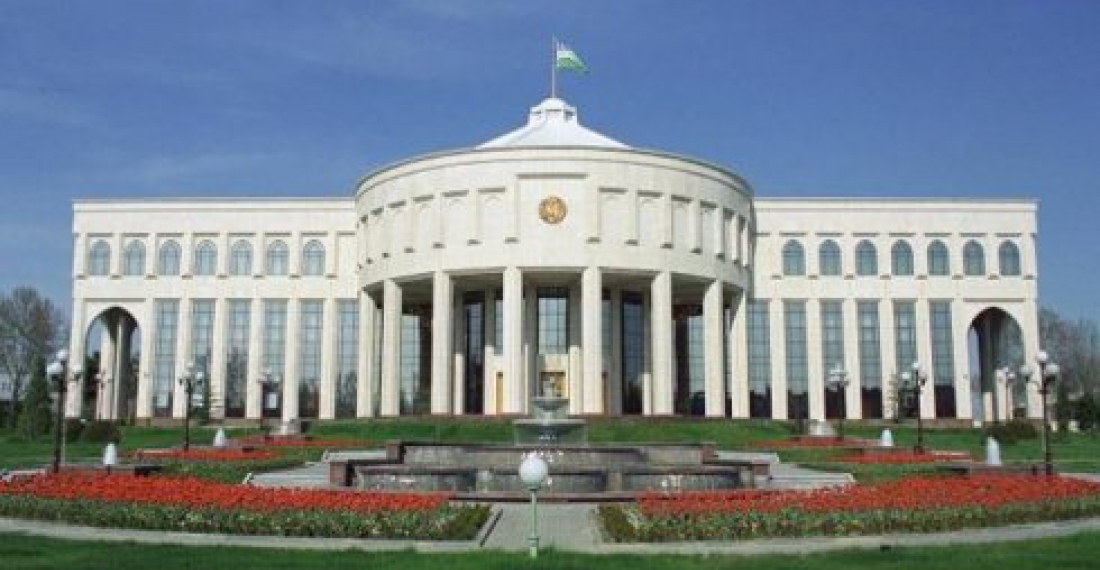The first confirmed communication since 2014 with former President's daughter comes from a Swiss lawyer
by Gideon Wakefield
Gulnara Karimova's spectacular fall from grace, from Uzbekistan's heir apparent to isolated prisoner in her own home, was one of the most tumultuous events in Uzbek politics before the death of her father, Islam Karimov, in September last year. Rumours about her fate had swirled around the media since 2014, when she was last seen in public. In a new twist, she was recently questioned by Swiss prosecutors at her home in Tashkent over charges of money laundering involving telecommunications licenses in Uzbekistan.
Once Uzbekistan's ambassador to the United Nations in Geneva, a businesswoman, and a budding popstar (under her alter ego Googoosha), Karimova was tipped to succeed her father, as the country's next leader. In 2013, however, she fell out of favour with her family in a rift that began with revelations of a feud with her sister, Lola Karimova-Tillyaeva.
After falling out with the rest of her family, the Uzbek government confirmed that she had been placed under house arrest when pictures emerged of her arguing with security guards at her house in Tashkent. At that time, she was being investigated by Uzbek authorities on corruption charges - the common accusation level at those who fall foul of the regime.
In the years since her arrest, numerous rumours of Karimova's whereabouts have circulated, fuelled by Twitter accounts claiming to be her, claims that she had been placed in a psychiatric hospital, or even that she was poisoned. Yet the latest revelations confirm that all these rumours were false.
Geneva-based lawyer Grégoire Mangeat gave an interview (in German) to Swiss newspaper NZZ confirming that she was a client, and that he had met with her in December. On December 9th and 10th, she was interviewed by Swiss prosecutors in relation to charges of money laundering.
The case involves apparent bribes taken by Karimova for the granting of 3G licenses to two European telecommunications companies (VimpelCom and TeliaSonera) in 2007. The Swiss authorities have frozen accounts containing 800 million Swiss francs relating to the case.
Questions about such corruption began to be asked in 2012, and it is not clear what role the public accusations against Karimova played in the collapse of her relationship with her father. Investigations in the US, Switzerland, Sweden, Norway, France and the Netherlands all examined the use of shell companies, controlled by Karimova, to take bribes.
Despite being implicated in this scandal for many years, it has never before been confirmed that she was questioned in relation to this activity. Now, however, for 23 hours over two days, she certainly has.
During her father's reign, any information about or communication with Karimova was tightly controlled. Under his successor, Shavkat Mirzoyoyev, she remains under house arrest, but, for the first time, has been able to speak with someone outside the country - her lawyer. In his interview, Mangeat said that she is in good health, but expressed concern for her safety and her ability to see her children. Most interesting for Tashkent watchers, though, was the suggestion that she had been coerced into a particular testimony by threat or actual use of violence against her.
It appears that Mirzoyoyev's government is attempting to recover and repatriate the funds lost to Karimova's corruption - something her father never attempted. In Uzbekistan, where hard currency is scarce and economic crisis continues to bite, the government needs all the funds it can get. Using (and possibly torturing) the deceased president's estranged daughter to get hold of it should not surprise even the most elementary student of Uzbek politics. It is yet to be seen if this is the start of a wider purge of the Karimov family, whose other financial and commercial interests in Uzbekistan remain substantial.
Gideon Wakefield is a researcher and journalist focussing on the former Soviet Union, currently based at the Graduate Institute of International and Development Studies in Geneva. He contributed this op-ed to commonspace.eu.







